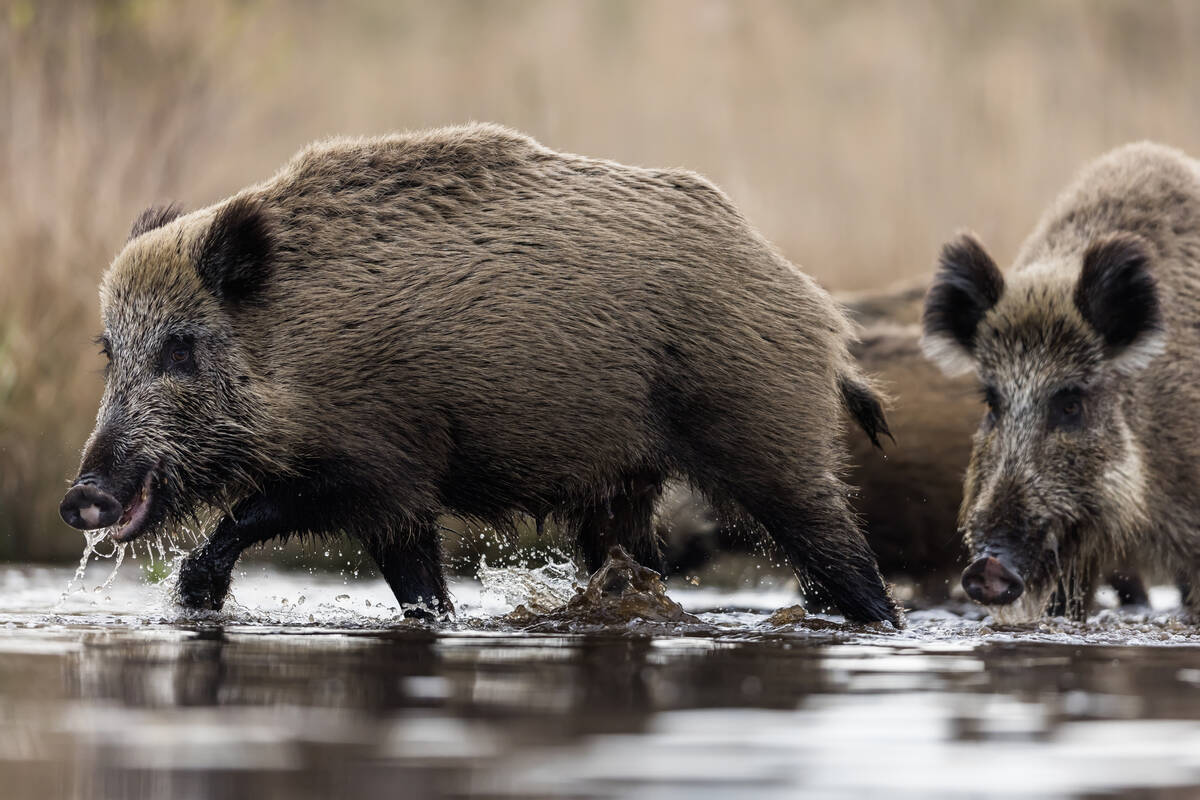Producers are warned to take action as environmental activists appear intent on shutting down the meat and dairy industries
Canadian ranchers and farmers are being urged to get vocal and active — in a peaceful way — to let government and industry organizations know their views on plans to reach net-zero carbon emissions and on upcoming standards for measuring farm sustainability.
Tammy Nemeth was born near Fort Qu’Appelle, Sask., and is now an energy and environmental consultant and analyst in the United Kingdom. She cautioned ranchers at the Alberta Beef Industry conference in Calgary in late February not to be complacent or too trusting when dealing with government and environmental activists.
Nemeth said the Canadian Sustainability Standards Board, created to develop sustainability disclosure standards in Canada, will release draft reports in March. These standards could reach the farm level, requiring producers to report the level of greenhouse gas emissions produced by their crop and livestock operations.
Read Also

Manitoba bans wild boar possession
Manitoba has tightened the regulatory status of Eurasian wild boar in an effort to help fight back against invasive wild pigs.
“There will be a relatively short window for producers to provide their input on sustainability disclosure recommendations,” says Nemeth. “But producers need to be involved and provide their input. The agriculture industry needs to have its voice heard.”
The review period for public input is expected to last about 90 days. Nemeth says producers can email her at tlnemeth@protonmail.com and she will keep them posted on action items.
She has been studying the anti-Alberta energy campaign for several years. Her consulting company, ESG2 Insight, provides research and analysis to help organizations understand the overlapping challenges of energy, security, geopolitics and environmental, social and governance elements.
Last year she wrote a report, Counting Carbon Molecules, which was an analysis of international sustainability standards. She says the experience of the oil and gas industry serves as a clear lesson for the agriculture industry.
Nemeth says the Canadian oil and gas industry has been “vilified” and “demonized” by an effective, well-financed campaign of environmental activists who now have the ear and support of the Canadian government.
In fact, one former activist, Stephen Guilbeault, is a founding member of Equiterre, a Quebec environmental organization, as well as a former director and campaign manager for the Quebec chapter of Greenpeace. He is now federal minister of the environment and climate change.
Nemeth says environmental activists launched the campaign for net zero carbon emissions with the “ridiculous and absurd” goal of shutting down the Canadian petroleum industry.
“There was a sense of disbelief that any country in the world would consider a ridiculous plan to purposely shut down its largest industry, “ she says.
“Especially Canada, which has the third largest oil reserves in the world. The idea threatens the livelihood of our economy, including the livelihood of our military.
“The loss of an affordable, reliable and secure energy supply is a threat to any modern society. “
But due to an effective, well-financed and persistent campaign by activists that included emotional messages, public relation stunts, misinformation presented in “shoddy” reports and scare mongering — all amplified through the media — the course has been set toward net zero carbon emissions.
“Can we survive this net zero plan?” says Nemeth. “The EU is farthest along this path and despite all the promises of a smooth transition, the EU energy grid is more unreliable, unaffordable and insecure than ever. And European programs which are jeopardizing food production, particularly dairy and beef, are models that Canada plans to emulate.”
Nemeth says there are three important lessons the agriculture industry can learn from the oil and gas industry experience:
- Understand the power structure of activists and how they work.
- Be aware of moving goal posts.
- Communicate like your life depends upon it, because it does.
- Realize that activists are well funded, often with a global reach, and are effective at attracting public support that leads to government support.
Nemeth says it’s important to realize that having a seat at the table means little when the outcome has already been decided.
“It is important to understand what and who you’re up against and take them seriously.”
On the agriculture side, many negative studies in the past 10 years, in Canada and globally, criticize intensive farming, farm mechanization, soil degradation, overuse of chemicals, loss of beneficial insects and the increasing production of methane and other greenhouse gasses, she noted.
As for moving goal posts, Nemeth says Canada once had a plan to reach net zero emissions by 2050. Now it appears the goal is to get there by 2030.
Farmers also have to be alert to what she described as bait and switch schemes.
She points to one conservation program in Holland that encouraged people to establish small conservation areas next to beef and dairy farms.
“It seemed like a good idea,” she says.
Sometime later, the government conducted soil tests and found high levels of nitrogen in the soils of these conservation areas. It was blamed on the neighbouring beef and dairy operations.
“Eventually it led the government to buy out some 2,000 Dutch beef and dairy farms and any farmers who took the money were not allowed to farm anywhere else in the EU,” says Nemeth.
She urged producers to get their message out to the public, “describing the benefits of what you do.”
She pointed to the Canada Action initiative that came forward to speak on behalf of the Canadian oil and gas industry.
“They weren’t part of the industry, just everyday Canadians. They are the ones with T-shirts that said ‘I love oil and gas’,” says Nemeth. “It’s not very high tech but T-shirts, stickers, billboards — they all still work as a way of getting the message out.”
Nemeth says activists are pressuring the government to place a ban on fossil fuel advertising, “and if that happens, it won’t stop there. Then there may be pressure to ban advertising for dairy and meat products. It has already happened in one community in Holland where there is a ban on meat ads.
“So it is so important get your story out there. Find some support from non-farming partners such as businesses, scientists, celebrities who can talk about the benefits of agriculture because your life does depend on it.”















